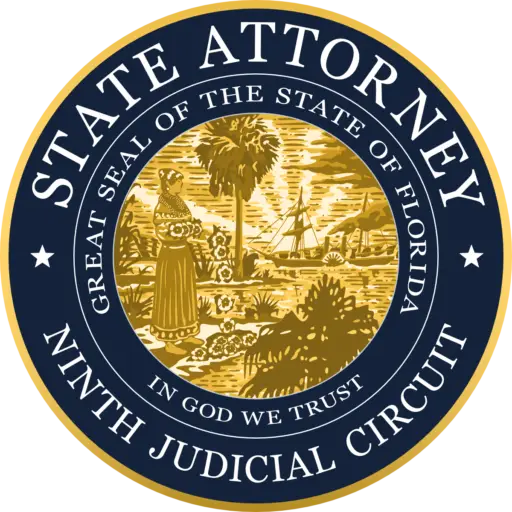The content included on this page is not legal advice and is for informational purposes only. If you have been charged or believe you may be charged with a crime, you should seek legal representation immediately. If you are unable to afford representation the court may appoint an attorney to represent you.
The information on this page is meant only as a guideline. If you are an interested party (witness, victim, or defense attorney) to a case that is currently open, you should receive correspondence from the State Attorney’s Office with more specific instructions. Pay close attention to the dates and instructions listed therein. Additionally, if you are a victim in a case that is currently being prosecuted by this office, special rights may be applicable to you. Please visit the Victim & Witnesses information page.
How is a criminal case created?
Most often a criminal case begins with the arrest of an individual, or, in rare cases, when an individual is given a notice to appear in court. The Clerk of Courts assigns a unique alpha numerical identification marker to each arrest. The marker is commonly referred to as a “case number.”
Who are the parties in a criminal case?
The three main players in a criminal case are the prosecution, the defendant and the defense attorney. The prosecution is the lawyer, or lawyers, charged with resolving a criminal case. This happens primarily by one of two ways: either through a negotiated plea bargain; or by proving the defendant guilty of the charged crime to a judge or jury. The defendant is the person accused of a crime. The defense attorney is the lawyer who represents the defendant and will attempt to either negotiate a plea bargain or if the case goes to trial, the defense attorney will attempt to convince the judge or jury that the prosecution is unable to prove its case against the defendant.
What is a plea bargain?
A plea bargain, sometimes called a negotiated plea, is an agreement between the prosecutor and the defendant, most often brokered through the defendant’s attorney, whereby a defendant agrees to accept certain consequences resulting from the charges against them in exchange for some benefit. The costs and benefits to each party that influence a plea bargain vary too widely to list examples here.
How long will it take for a criminal case to be resolved?
Many variables can affect the duration of time from arrest to resolution of a criminal case. Any number of parties can cause delay, or in fact speed up the time needed to resolve a case. Although each case is unique, the severity of the crime, the criminal history of the defendant, the availability of witnesses, and the time needed for case preparation by both the prosecutor and defense attorney can all affect the duration of time a criminal case remains unresolved.
What is a subpoena?
In the context of a criminal case, a subpoena is a legal document issued by the court, or prosecuting attorney, ordering the recipient to appear at a certain time and place to testify under oath as a witness.
I’ve been subpoenaed for a criminal case what should I do?
First read the subpoena and all other related correspondence very carefully and follow all instructions. Before coming to court on the date of your subpoena it is critical that you call the phone number provided to confirm if, when, and where you are to come to court. Our courts have a heavy caseload; therefore, Judges often schedule a large number of cases for trial beginning on the same day. Of course it is not possible to try them all at the same time, so some cases end up being reset for a later date.


